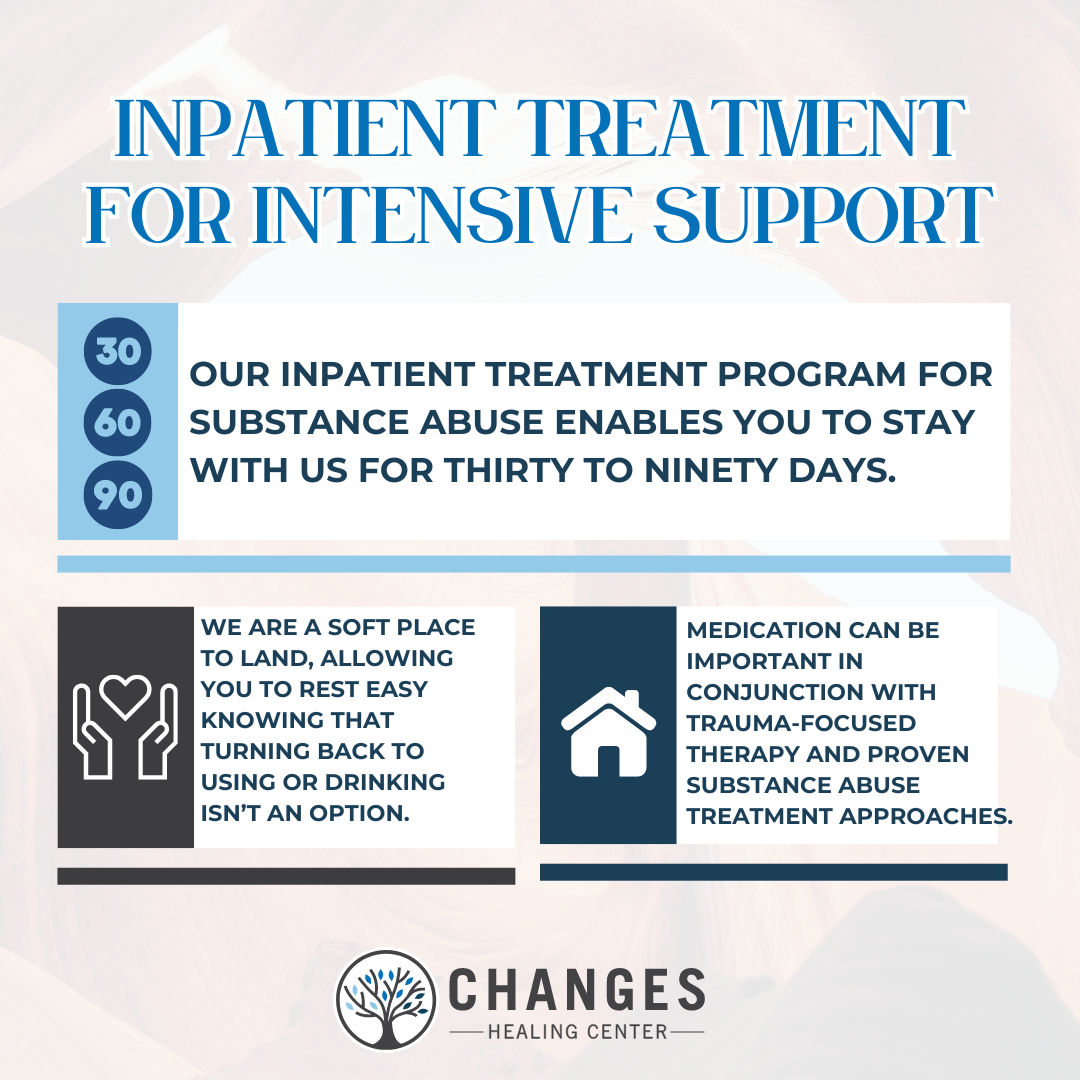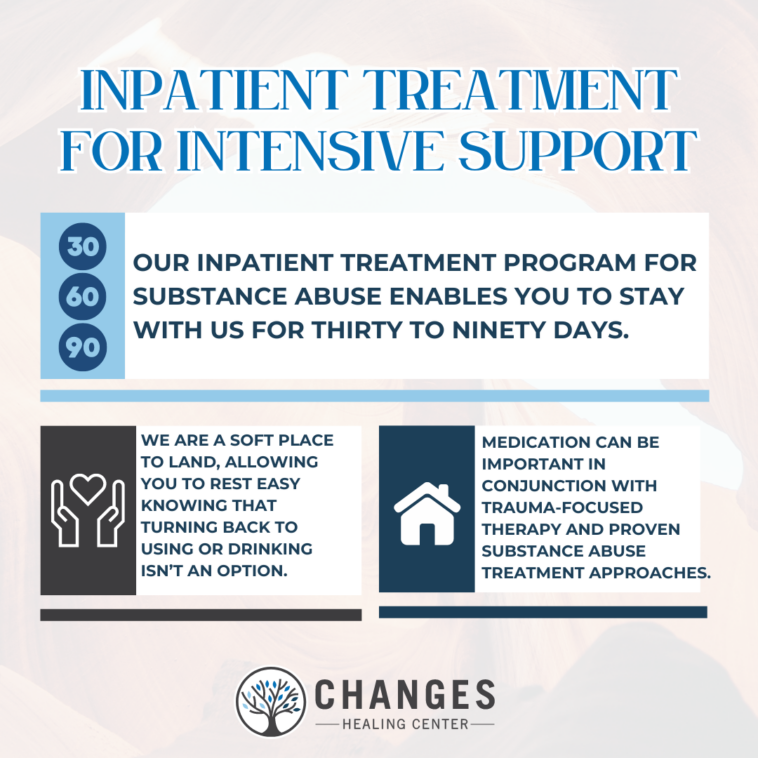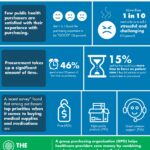
Breaking Down Barriers in Addiction Treatment: A Closer Look at Phoenix’s New Expansion
This opinion editorial examines the recent expansion of rehab offerings at Changes Healing Center in Phoenix, Arizona, an initiative poised to reshape the landscape of addiction treatment. The center’s decision to broaden access to detox and rehabilitation services for individuals covered by AHCCCS—Arizona’s Medicaid program—marks a crucial step forward in addressing the tricky parts of providing accessible, evidence-based care for substance use disorders.
At its core, the expansion is a response to the tangled issues and confusing bits that have long plagued addiction treatment accessibility. In a climate where many seeking recovery face off-putting financial and logistical barriers, the center’s efforts to accept AHCCCS along with a slate of major private insurances not only smooth out these complicated pieces but also offer a more seamless route to healing. In the following sections, we take a closer look at the various aspects of this development and explore its broader legal, social, and healthcare implications.
Expanding AHCCCS Rehab Opportunities Amid Tricky Parts and Tangled Issues
The recent expansion of detox and rehabilitation services at Changes Healing Center represents an important milestone in helping Arizona residents, especially those reliant on AHCCCS, access quality care without being overwhelmed by nerve-racking financial burdens. By accommodating Arizona Medicaid beneficiaries, the center is working through some of the most intimidating challenges in the recovery field.
For decades, the path to recovery has been riddled with tension caused by limited treatment options for low-income or underinsured individuals. Many have been forced to navigate a maze of confusing bits in the healthcare system where eligibility, appointment delays, and inadequate coverage have turned every step into a nerve-racking challenge. Now, with expanded AHCCCS offerings, individuals can find their way to a program engineered specifically to treat substance use disorders through safe withdrawal management and personalized rehabilitation plans.
This move comes at a time when the legal framework surrounding healthcare and insurance is evolving to support more inclusive practices. Legislators and legal experts alike are closely examining how expanding access to addiction treatment can be aligned with federal mandates for healthcare equality. In this environment, Changes Healing Center’s approach is both innovative and compliant with the fine points of legal and regulatory standards, ensuring that beneficiaries receive high-quality care without stumbling over red tape.
Data shows that a comprehensive approach to detox and rehab programs substantially improves recovery outcomes. By accepting AHCCCS, the center helps lower the barrier of entry for those traditionally excluded from timely treatment. Through evidence-based practices and compassionate care, it levels the playing field, making recovery a possibility for a wider spectrum of the population.
Overcoming Financial Hurdles with Inclusive Insurance Programs
One of the most significant aspects of this expansion is its potential to alleviate financial concerns by accepting a wide variety of insurance plans. When considering recovery, many individuals find themselves ensnared in a financial labyrinth that makes it difficult to figure a path toward treatment. The center’s willingness to accept various insurance providers—inclusive of not only AHCCCS but also major carriers like BCBS, TRICARE, Aetna, Cigna, and Molina—represents a pivotal shift in ensuring that treatment is not solely a luxury for those with extensive coverage.
The following bulleted list highlights several key points that underscore the importance of integrating multiple insurance options into addiction treatment programs:
- Enhanced financial accessibility by reducing out-of-pocket expenses
- Streamlined admissions process that minimizes delays for treatment initiation
- Increased coordination with insurance providers to ensure continuous care
- Broader treatment options that cater to both inpatient and outpatient needs
- Support for individuals with dual diagnoses who require comprehensive treatment plans
In addition, the expansion features enhanced services for Banner University Family Care members. This collaboration ensures that those covered by the Banner University AHCCCS plan receive quality rehab treatment without undue waiting, further smoothing over the problematic twists and turns that often delay recovery.
Below is a table summarizing the insurance programs now accepted by the center, providing clarity on an otherwise tangled issue:
| Insurance Provider | Coverage Benefits |
|---|---|
| AHCCCS | Access to detox, sub-acute care, and rehabilitation programs |
| Banner University Family Care | Streamlined rehab admissions with no undue delays |
| BCBS | Comprehensive addiction treatment services |
| TRICARE | Extended support for military families facing substance use challenges |
| Aetna, Cigna, Molina | Broad network coverage ensuring high-quality care |
This multi-pronged insurance acceptance strategy represents more than just a financial fix. It underscores the rigorous commitment of Changes Healing Center to dismantle the intimidating barriers that stand between individuals and recovery. By ensuring that cost-related hurdles do not impede access to quality care, the center sets a new standard that could eventually serve as a model for other facilities across the nation.
Understanding How Detox Programs are Structured for Success
The architecture of a successful rehab program is built on a foundation that addresses the nitty-gritty of withdrawal management, therapy, and aftercare support. In this expanded model, sub-acute detox programs have emerged as crucial first steps in managing the often overwhelming and nerve-racking process of detoxification.
The center employs evidence-driven methods to ease individuals through the withdrawal process, taking a step-by-step approach that accounts for the subtle details of each client’s struggle. Here are some of the key components that structure these detox programs effectively:
- Medical Supervision: Continuous oversight by healthcare professionals to manage withdrawal symptoms safely.
- Personalized Detox Plans: Customized approaches that consider an individual’s history and health status.
- Evidence-Based Practices: Incorporation of the latest research findings to tackle the confusing bits of addiction treatment.
- Holistic and Therapeutic Measures: Support systems including therapy sessions, group support, and alternative healing options.
Notably, these programs are designed to address both the chemicals’ impact and the emotional toll of withdrawal. In doing so, they work around the daunting, intimidating challenges often associated with detox—the process is carefully managed to reduce the nerve-racking aspects and ensure a safer transition into rehabilitation.
The center’s efforts to promote a smooth detox process are also intricately linked to legal and insurance considerations. By establishing protocols that comply with healthcare regulations and ensure patient safety, Changes Healing Center has charted a balanced course that marries clinical best practices with the fine points of legal requirements.
Ultimately, this structured approach offers a promising blueprint for addressing the demand for detox programs that not only prioritize medical safety but also offer compassionate, individualized care. With further refinements, these methods could help demystify a process that has long been viewed with trepidation by those in need.
Navigating the Intersections of Law, Policy, and Healthcare Delivery
The expansion at Changes Healing Center is not occurring in a vacuum; it is part of a broader trend that recognizes the complex interplay between legal mandates, state policies, and healthcare delivery. The integration of AHCCCS into addiction treatment programs is a critical element that underscores the center’s commitment to aligning with current legal frameworks and healthcare regulations.
Legal experts have often pointed out that policy shifts in healthcare require stakeholders to address several subtle parts of implementation. When changes are made, it is essential to manage your way through the legal aspects while ensuring that patient care remains paramount. This expansion reflects a keen awareness of the need to work within a legal framework that supports recovery without creating additional complicated pieces for patients and providers alike.
Key legal and policy considerations include:
- Ensuring compliance with federal and state healthcare mandates
- Upholding the standards set by accrediting bodies such as the Joint Commission
- Facilitating partnerships with insurance providers to guarantee coverage for essential services
- Minimizing contractual and administrative hurdles that make the process overwhelming
The center’s ability to successfully integrate these legal and policy layers into its operational framework serves as a testimony to the potential for innovation in a traditionally full-of-problems system. This model demonstrates that legislative and regulatory challenges, although sometimes loaded with issues, can be managed with a balanced, systematic approach that encourages transparency and accountability.
For lawmakers and healthcare administrators, this expansion presents several key lessons. First, clear communication and a collaborative environment can help smooth over the often nerve-racking twists and turns of navigating policy reform. Second, establishing partnerships with organizations that are willing to embrace change and invest in comprehensive treatment protocols can serve as catalysts for system-wide improvement. Finally, measuring outcomes and adapting strategies based on evidence-driven findings remains essential in forging a path toward a more accessible and coherent healthcare system.
Overcoming Social Stigma and Promoting Recovery as a Right
Beyond insurance and legal blueprints, the human element of addiction treatment cannot be overlooked. Social stigma remains one of the most intimidating and complicated pieces in the puzzle of recovery. Many individuals battling substance use disorders face judgment from society, making the process of seeking help even more nerve-racking.
The expansion at Changes Healing Center also serves as a beacon in the fight against stigma. By treating recovery as an essential right rather than a privilege, the center helps to reframe addiction treatment in a way that is both compassionate and practical. Recognizing that every individual deserves access to quality care, the center’s inclusive policies challenge traditional perceptions and encourage a more supportive community culture.
To further reduce these challenging social barriers, several initiatives have been put forward in tandem with the expansion:
- Public Awareness Campaigns: Initiatives that educate the public about the realities of addiction and the importance of accessible treatment.
- Community Outreach Programs: Collaborative efforts with local organizations to provide support and resources for those in need.
- Peer Support Networks: Establishing groups where individuals in recovery can share experiences and provide mutual aid.
By highlighting recovery as a key human right, Changes Healing Center not only provides physical treatment but also works to erase the negative connotations that have long surrounded addiction. This approach, which emphasizes dignity, understanding, and evidence-based interventions, is critical in transforming public perceptions and fostering a culture where seeking help is encouraged rather than shamed.
Legal scholars have argued that destigmatizing addiction is essential for creating policies that are both humane and effective. In doing so, healthcare providers, lawmakers, and communities must work together to remove the hidden complexities that have historically prevented people from accessing treatment. When society starts to accept recovery as a critical component of public health, the benefits extend far beyond the individual—impacting families, communities, and the legal system at large.
Insights Into the Future of Rehab Services in the Greater Phoenix Area
Looking ahead, the expansion of rehab offerings in Phoenix is poised to serve as a catalyst for broader changes throughout Arizona and potentially across the nation. As addiction treatment models continue to evolve, stakeholders are taking a closer look at how these innovative programs can be replicated and further refined to address the ever-changing needs of the community.
Several trends and potential developments can be identified from the current initiative at Changes Healing Center:
- Increased Collaboration: Greater partnerships between healthcare providers, legal experts, and government agencies to ensure that services are comprehensive and adhere to the latest standards.
- Community-Based Recovery Programs: Expanding the reach beyond clinical settings to include community outreach, peer support, and local rehabilitation resources.
- Enhanced Data Collection: Utilizing research and performance metrics to better understand the fine shades and subtle details of effective treatment protocols.
- Patient-Centered Innovations: Leveraging technology and personalized treatment plans to better match individuals with programs that suit their unique needs.
- Regulatory Flexibility: Adapting legal and policy frameworks to promote faster, smoother transitions into treatment without getting bogged down by intimidating bureaucratic hurdles.
As we dive in to explore these upcoming trends, it is important to note that the future of rehab services lies in our collective ability to work through the tricky parts and sorting out the maze of protocol adjustments. With a focus on both clinical outcomes and legal compliance, providers can better cater to the diverse needs of patients across the region.
A collaborative approach among stakeholders will be super important in transforming community health dynamics. In the coming years, it is expected that similar expansion efforts could emerge in other regions, setting benchmarks for sustainable and inclusive recovery models. This potential ripple effect could lead to statewide, if not nationwide, improvements in how addiction is managed from both a legal and health standpoint.
Moreover, the lessons learned in Phoenix may serve to inform debates on healthcare policy reform at a broader level. By demonstrating that integrating insurance programs and legal guidelines into a cohesive treatment model is not only possible but also effective, the center paves the way for future innovations in addiction treatment that benefit everyone—from policymakers to the people in need of care.
Conclusion: A Step Toward a More Equitable and Compassionate Future
In conclusion, the expansion of AHCCCS rehab offerings at Changes Healing Center in Phoenix is a significant development in the ongoing effort to make addiction treatment more accessible, comprehensive, and compassionate. By addressing the tricky parts, tangled issues, and complicated pieces of healthcare delivery, the center is taking the wheel in an arena where financial, legal, and social challenges have long limited recovery opportunities.
This initiative is not merely about increasing the number of available treatment slots but about setting a new standard for how recovery services should be structured nationwide. By accepting multiple forms of insurance—including AHCCCS, Banner University Family Care, and several major private carriers—the center is ensuring that financial barriers no longer steal the hope from those battling substance use disorders.
Furthermore, the center’s commitment to safe, evidence-based detox programs and holistic rehabilitation plans reveals a nuanced understanding of both the subtle details and the overwhelming challenges inherent in addiction treatment. This thoughtful approach, which navigates policy hurdles and combats social stigma, represents a paradigmatic shift in how we view recovery as an essential human right.
For legal professionals and policymakers alike, the center’s expansion highlights the need to be continually aware of the fine points of regulatory reform while ensuring that patient care is never compromised. By integrating comprehensive treatment models with robust insurance partnerships and community support initiatives, Changes Healing Center is not only easing financial and procedural burdens but also laying the groundwork for future legal and healthcare innovations.
Looking forward, the positive outcomes seen here could encourage similar models to be adopted in other jurisdictions, ultimately fostering an environment where recovery is attainable for all individuals—regardless of their insurance status or socio-economic background. The efforts taken today to resolve the confusing bits and manage the overwhelming twists and turns of addiction treatment will pave the way for a more equitable tomorrow.
This expansion stands as a clear call to action for communities, state officials, and healthcare providers to continue working together. It invites us to question the status quo and demand the kind of comprehensive, accessible care that addresses not only the behavior of addiction but also the legal, financial, and societal challenges that have long hindered progress.
In our journey toward a more compassionate healthcare system, initiatives like these remind us that change is both possible and necessary. With diligent effort, transparent policies, and a commitment to overcoming every intimidating barrier, we can build a future where everyone in need has the opportunity to embark on the path to recovery. It is a future where the right to adequate treatment is no longer a privilege, but a standard—a future where hope is restored, one life at a time.
Originally Post From https://northeast.newschannelnebraska.com/story/52618339/changes-healing-center-expands-phoenix-ahcccs-rehab-offerings-to-improve-accessibility-for-all-seeking-help
Read more about this topic at
Expanding access to rehabilitation using mobile …
Expanding rehabilitation access in Tajikistan


